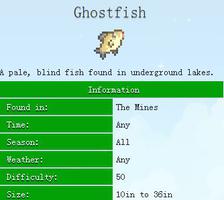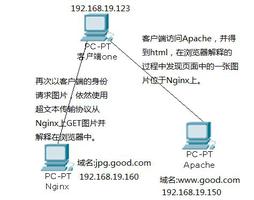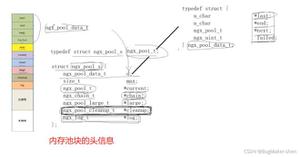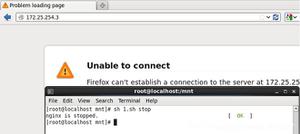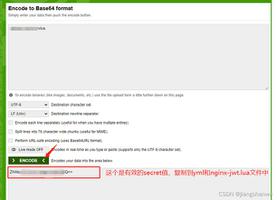Leetcodesolution1169InvalidTransactions

Problem Statement
A transaction is possibly invalid if:
- the amount exceeds $1000, or;
- if it occurs within (and including) 60 minutes of another transaction with the same name in a different city.
Each transaction string transactions[i] consists of comma separated values representing the name, time (in minutes), amount, and city of the transaction.
Given a list of transactions, return a list of transactions that are possibly invalid. You may return the answer in any order.
Example 1:
Input: transactions = ["alice,20,800,mtv","alice,50,100,beijing"]Output: ["alice,20,800,mtv","alice,50,100,beijing"]
Explanation: The first transaction is invalid because the second transaction occurs within a difference of 60 minutes, have the same name and is in a different city. Similarly the second one is invalid too.
Example 2:
Input: transactions = ["alice,20,800,mtv","alice,50,1200,mtv"]Output: ["alice,50,1200,mtv"]
Example 3:
Input: transactions = ["alice,20,800,mtv","bob,50,1200,mtv"]Output: ["bob,50,1200,mtv"]
Constraints:
transactions.length <= 1000- Each
transactions[i]takes the form"{name},{time},{amount},{city}" - Each
{name}and{city}consist of lowercase English letters, and have lengths between1and10. - Each
{time}consist of digits, and represent an integer between0and1000. - Each
{amount}consist of digits, and represent an integer between0and2000.
Problem link
Video Tutorial
You can find the detailed video tutorial here
- Youtube
- B站
Thought Process
It's an implementation problem and it's up to you how fast you can type to determine whether you want to flex your muscles on object oriented design. It's actually quite a small moev, whether you want to convert the comma separated line into a Transaction object or not.
To meet the two conditions, we can simply loop over all the transactions while at the same time, keep a map to store all the transactions under the same name. Then the problem is compare the city for all the transactions under the same name that time is less or equal than 60 mins. At first I was trying to sort the collection based on the time in ascending order. However, that does not really help reduce the O(N^2) complexity since worst case is still all transactions are within the 60 mins bound, and one "bad" transaction can essentially cause all the previous "good" transactions to become bad, so we have to go back and revisit the previous ones. (as shown in below graph)
Example on one transaction make all previous ones invalid
Caveats
- It's better to use a Set for de-duplication than a list since we might add duplicate transactions to the collection (e.g., a transaction > 1000 amount could also be invalid due to same name with different city under time < 60min)
Solutions
1publicclass Transaction implements Comparable<Transaction> { 2public String name; 3publicint timeInMin; 4publicint amount; 5public String city; 6public String txnString; 7 8/**
9 * Constructor
10 * @param txn a string "{name},{time},{amount},{city}"
11*/
12public Transaction(String txn) {
13this.txnString = txn;
14
15 String[] txns = txn.split(",");
16this.name = txns[0];
17this.timeInMin = Integer.parseInt(txns[1]);
18this.amount = Integer.parseInt(txns[2]);
19this.city = txns[3];
20 }
21
22// sort transactions order in timeInMin ascending order
23 @Override
24publicint compareTo(Transaction o) {
25returnthis.timeInMin - o.timeInMin;
26 }
27 }
28
29public List<String> invalidTransactions(String[] transactions) {
30// need to use a set, since an invalid one could be a one > 1000, and that one could also be invalid due to
31// same person different locations
32 Set<String> invalidTxns = new HashSet<>();
33
34 Map<String, List<Transaction>> lookup = new HashMap<>();
35
36for (String t : transactions) {
37 Transaction txn = new Transaction(t);
38if (!lookup.containsKey(txn.name)) {
39 lookup.put(txn.name, new ArrayList<Transaction>());
40 }
41
42 lookup.get(txn.name).add(txn);
43
44if (txn.amount > 1000) {
45 invalidTxns.add(txn.txnString);
46continue;
47 }
48 }
49
50for (Map.Entry<String, List<Transaction>> entry : lookup.entrySet()) {
51 List<Transaction> txns = entry.getValue();
52if (txns.size() <= 1) {
53continue;
54 }
55
56// Sorting in this case didn't really help on time complexity
57 Collections.sort(txns);
58
59// have to perform two loops, essentially it's O(N^2) if they are all in range
60for (int i = 1; i < txns.size(); i++) {
61 Transaction cur = txns.get(i);
62
63for (int j = i - 1; j >= 0; j--) {
64if (cur.timeInMin - txns.get(j).timeInMin > 60) {
65break;
66 }
67
68if (cur.city.equals(txns.get(j).city)) {
69continue;
70 }
71
72 invalidTxns.add(cur.txnString);
73 invalidTxns.add(txns.get(j).txnString);
74 }
75 }
76 }
77 List<String> res = new ArrayList<>(invalidTxns);
78return res;
79 }
Time Complexity: O(N^2),we have to loop through the transactions in a nested way for worst case all transactions are under the same name and all within 60min.
Space Complexity: O(N),the result list and set and the extra hashmap we used
References
- None
以上是 Leetcodesolution1169InvalidTransactions 的全部内容, 来源链接: utcz.com/z/509188.html


